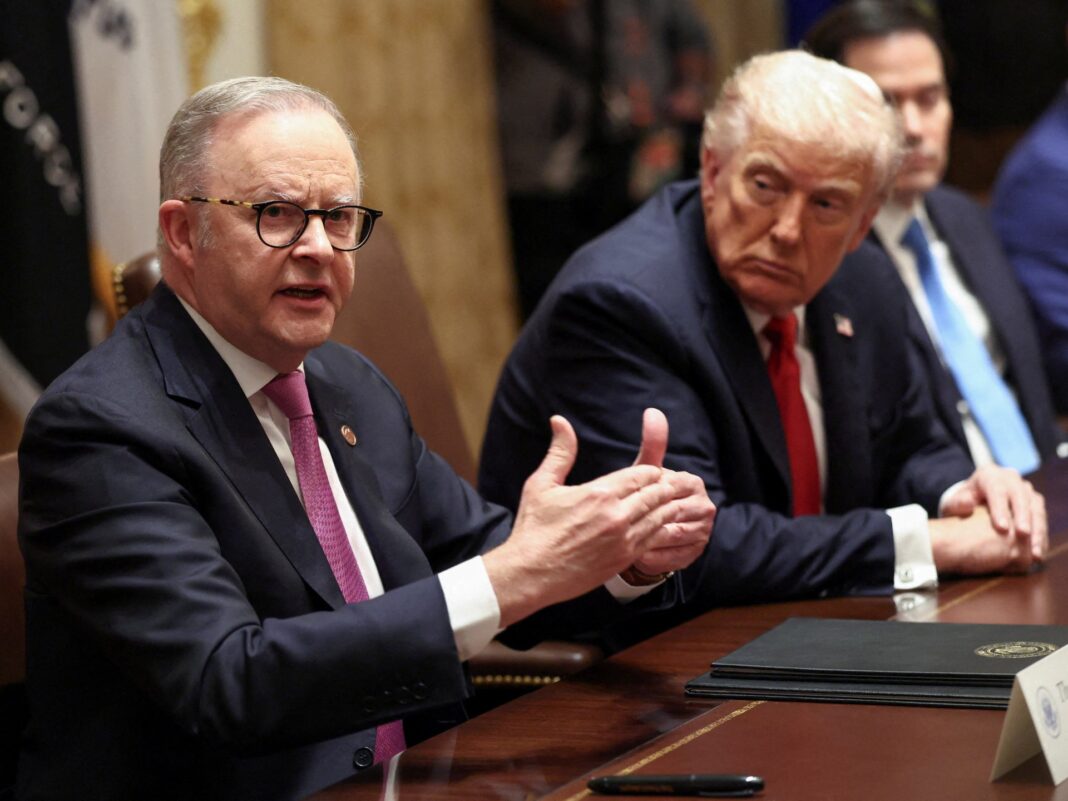A New Era in Rare Earth and Critical Minerals: The Trump-Albanese Agreement
On October 20, 2025, a pivotal moment unfolded in the realm of international trade and resources as United States President Donald Trump and Australian Prime Minister Anthony Albanese officially signed an agreement focused on rare earth and critical minerals. This development comes at a time when China has begun tightening its control over the global supply of these essential materials. The signing ceremony took place at the White House, marking a significant step in U.S.-Australia relations.
Months of Negotiation
In a statement during the signing, President Trump emphasized that the agreement had undergone rigorous negotiation over the past four to five months. This extensive dialogue underscores the increasing urgency for both nations to safeguard their interests in the face of shifting geopolitical dynamics, especially regarding China’s growing influence in the rare earth market.
The Financial Framework
The financial aspects of the agreement are also noteworthy. Prime Minister Albanese described the deal as an ambitious $8.5 billion investment pipeline, fully prepared for immediate execution. Both countries have committed to investing $1 billion each over the next six months to initiate mining and processing projects. This investment is particularly crucial given the ongoing geopolitical shifts and the need for secure, reliable access to critical minerals.
Setting Price Floors
One of the standout features of the agreement is the establishment of a minimum price floor for critical minerals. This move responds to longstanding requests from Western miners who seek more stability and predictability in pricing. The creation of such a price floor indicates a serious commitment from both nations to bolster their competitive positions in the global market against the backdrop of China’s dominance.
Australia’s Resource Potential
While China retains the world’s largest reserves of rare earths, Australia is not far behind and boasts significant untapped resources. This positions Australia as a crucial player in the rare earth supply chain, especially as Western nations attempt to reduce their reliance on Chinese material. The agreement not only paves the way for economic cooperation but also for resource security.
Military Cooperation
In addition to economic discussions, Trump and Albanese also aimed to address military cooperation, focusing on issues related to submarines and military equipment. They sought to build on the $239.4 billion agreement made in 2023, wherein Australia will purchase U.S. nuclear-powered submarines, with additional plans for a new submarine class developed in partnership with Britain.
US Navy Secretary John Phelan mentioned that efforts are underway to refine the existing framework of this agreement. Such adaptations highlight the focus on ensuring clarity and precision in the dealings between the three nations involved.
China’s Export Controls
As this agreement was being formalized, Australian officials were keen to point out their active role under AUKUS, the trilateral military partnership between the U.S., Australia, and the U.K. Australia is contributing $2 billion this year to bolster production rates at U.S. submarine shipyards and is gearing up to maintain U.S. Virginia-class submarines at its own naval base. This proactive approach demonstrates Australia’s commitment to enhancing defense capabilities amidst regional uncertainties.
The Urgency of U.S.-Australia Relations
The delay of ten months in convening an official meeting since Trump took office has raised some concerns within Australia, particularly following calls from the Pentagon for increased defense spending. The two leaders briefly met on the sidelines of the United Nations General Assembly in New York, but this recent agreement marks a hopeful pivot towards strengthened diplomatic and defense ties.
Strategic Reserves and Global Competition
With global demand for critical minerals surging—essential for technologies ranging from electric vehicles to military applications—Australia is also considering the sale of shares in its strategic reserve of these minerals to allies like Britain. This strategy reflects a broader strategy among Western governments to alleviate dependence on China for rare earths and other essential materials.
Reckoning with Beijing
High-ranking U.S. officials have voiced their concerns regarding China’s recent expansions of rare earth export controls, labeling them as a potential threat to global supply chains. As the world grapples with the implications of these moves, collaborative agreements like the Trump-Albanese initiative stand as essential countermeasures in ensuring secure access to crucial resources.
This agreement represents a pivotal convergence of economic, military, and strategic interests between the U.S. and Australia. The implications of their collaboration extend beyond bilateral ties, affecting global supply chains and geopolitical stability in a rapidly changing world.



